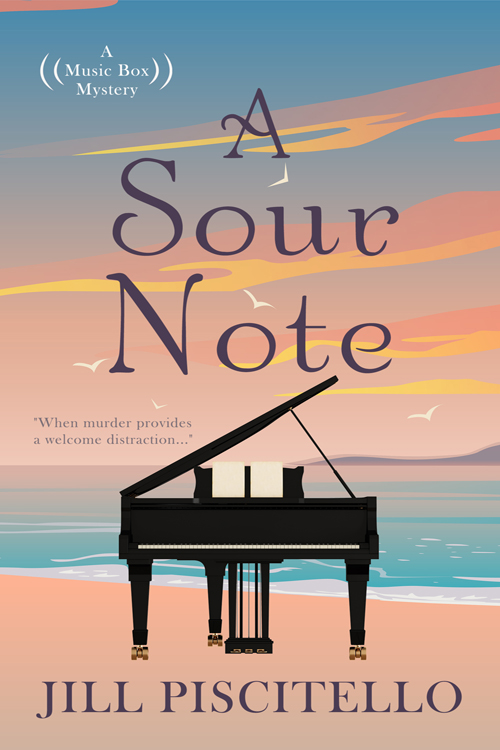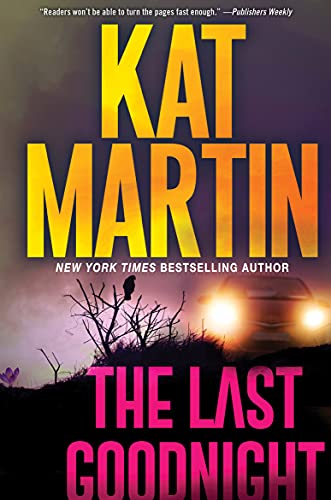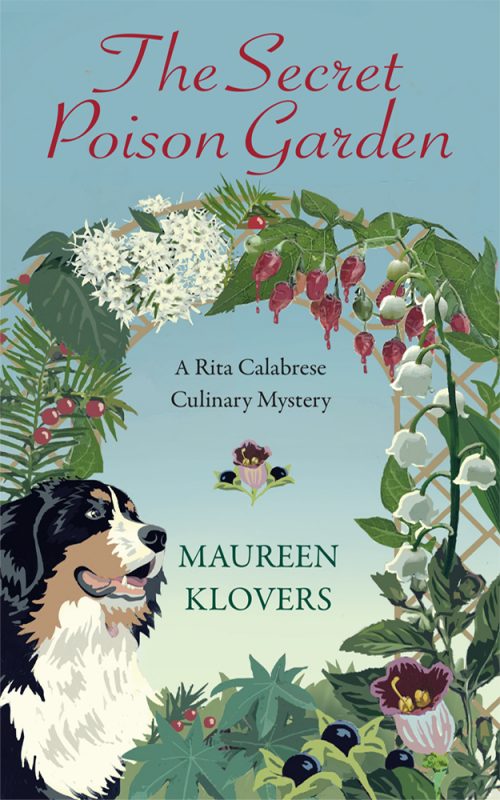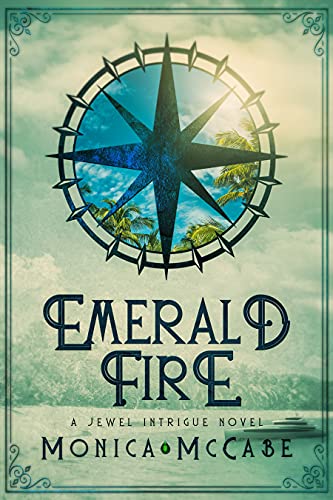What’s All The Hype Over Keywords?
August 12, 2022 by Denise M. Colby in category The Writing Journey by Denise Colby tagged as Keywords, Marketing for Authors, SEO MarketingWe’ve all heard these statements: Use keywords in your blog posts. Up your SEO game with the right keywords. Keywords are the key. Keywords matter. So what is all the hype over keywords?

Here’s a simple definition:
Keywords are used in digital marketing to describe a word or group of words someone types in a search engine/search bar to perform a search.
As writers we use that search bar all the time for our research.
And that’s how our readers use the search bar too.
So when we write a blog post – think what your reader would possibly type in their search bar to find what you are writing. And use your search bar to test the keywords you are selecting.
The hype over keywords is no joke
Have you ever searched for something and had to change the wording several times to finally get to what you were looking for? That’s the keyword organization going on. The search engines have specific formulas to organize and index everything on the internet. When someone performs a search, they want to find relevant content. And why businesses in the SEO and search engine business hype the use of keywords all the time. And teach what they can on the subject. The better everyone uses keywords, the more organized internet content will be.
How do you write keywords?
Keywords are tricky. You can’t use the same ones twice. If you do, they sort of cancel each other out when being indexed. So, when you use only one word, it limits using that word ever again. So using two words and varying one of them for different scenarios would be a good strategy.
Another strategy is to not use words too broad or too narrow. Again, think about the terms you use when searching for similar topics. You want to land on the first page of the search. The more you research, you’ll start to see how to tweak and tailor your keywords to better fit.
Other tips for writing strong keywords
- Make sure posts and pages are focused and related to only ONE main idea. When you figure out your keyword FIRST, you write your blog post differently.
- Include your keywords in your title, first paragraph, a subhead or two, and the body text
- Use other relatable words that support the main topic through the post/page
- Include pictures that represent your keywords and add your keywords into the alt text
- Keywords can be tied into your Category and Tag strategy as well, especially if it’s a topic you cover frequently
- You could use your keyword phrase as your slug to keep things simple
Interested in learning more about SEO? Check out my Using a Blog SEO Checklist to Streamline Your Blog Post and/or sign up for my Marketing for Authors newsletter on my website.
0 0 Read more
Using a Blog SEO Checklist to Streamline Your Blog Post
May 12, 2021 by Denise M. Colby in category The Writing Journey by Denise Colby tagged as Blog SEO Checklist, Denise M. Colby, Marketing for Authors, SEO, SEO MarketingDid you know that using an Blog SEO Checklist can help you streamline the time it takes you to build your blog posts?
We all know it takes time to figure out what we even want to write about, but then we also need to figure out all the SEO parts that support that particular blog post.
If we were to build the SEO as part of the blog post step, we’d save ourselves a lot of time and be more strategic and purposeful with what we are posting.
I don’t know about you, but it seems every month I forget how much time it takes to organize my SEO because I think about it AFTER I write the post. Sometimes it takes longer figuring out the SEO then it does to write the post and pull graphics together. And then because I’m entering it all last minute, I don’t think it through as much as I would like.

I’m working on changing that and thought it would be helpful to pull together a checklist for all of us.
Focus Keyword:
Figuring out this first—even before you start writing the post—will help save you time in the long run. What do you want your focus word to be? Everything else should stem from this.
Category & Tags:
Knowing your categories and tags before you develop your blog posts help you be more strategic and set up an organization within your posts. In my classes I help you brainstorm and build out potential ideas for your blog.
Blog Title:
Make sure to put your focus keyword in your title and the first paragraph of your post.
Slug:
The slug should be condensed version of your title and/or keyword. See my blog post about slugs—URL Slugs: The Right Custom Slug Builds SEO or Custom URL Slug and How To Make One
Meta Description:
This is a summary in a small one-to-two sentence structure. Some use the first paragraph, some change it up. Make sure it includes your focus keyword, and remember this is the summary someone sees if they are searching the topic and your post appears on the search results.
Graphics Alt Text:
The Alt Text should have your keyword in it. If you pick your keyword last and already uploaded your graphics (see my three-part blog post about graphics and SEO) you might miss this opportunity to connect your graphics with stronger SEO.
Outbound Link:
Think of one link that would support your blog post (research, your own website). You can sign up for my Marketing for Authors Newsletter using this link to my website.
Inbound Link:
Think of one link within the blog website that supports your current blog post. Don’t forget to use Anchor Text. I did this in the slug section and the graphics alt text above.
How to Apply Your Blog SEO Checklist
I highly recommend creating a spreadsheet to keep track of what you use for SEO every post. It’s important that you don’t repeat the same words and phrases each time, yet build out synonyms and similar themes with your SEO to help establish your authority on certain topics.
If you have a notebook, you can download this sheet to write in the blanks.

Short on time? Take a screen shot of the data, or write it on a post-it note. Anything to help you keep track of your SEO. It’s all about building your brand, and your SEO strategy is a part of that. And using a blog SEO checklist is one way to help you develop this strategy.
0 0 Read moreURL Slugs: The Right Custom Slug Builds SEO
February 12, 2021 by Denise M. Colby in category The Writing Journey by Denise Colby tagged as Denise M. Colby, Marketing for Authors, SEO, SEO MarketingDid you know you can customize the slug part of the URL for every blog post you create AND that it helps to build SEO? All of us create a URL when we post on this blog. But did you know you can customize it?

What is the slug and what does it do.
A URL is the address of a website page. URL stands for Uniform Resource Locator. It’s this address that allows someone to go directly to a specific page. The slug is the tail end of the URL that identifies a particular page on a website in an easy to read form.
What’s nice about the slug is that you can provide the link. Or someone can find it in a search engine.
And we all want someone to find it if they search for the information we are writing about.
How can a URL slug appear in the searches we want?
Choose the right words.
In my research I found out that the simple extra words can be removed. Words such as the, and, of.
The simpler, the better. Just 4-5 words max.
And using the Keyword or phrase you’ve selected is a bonus when building SEO.
Even though we don’t own this blog, we want our writing to be found. So SEO on our individual blog pages matter, which means the right slug builds SEO.
And one way to do that is to customize the URL slug.
How do you customize the URL slug to build SEO?
The slug is listed in the Yoast section at the bottom of our post entry. You can also see it appear in the Permalink to the right, under the document.
Just take out the extra words. Choose words that would be a phrase that someone would write in a search looking for this particular article.
For this blog post, I chose custom-slug-builds-seo, which is the same as my keyword phrase.
I then took this keyword/slug and googled it to make sure that it fit what I wanted it to fit.
Once you set a slug, don’t change it.
This is because once you give out the link to the post, if you change it, no one will be able to find it.
I know I have several slugs I would love to go back and change and make them stronger and shorter. I didn’t know what I didn’t know.
But keep in mind. It may not be wise to go back and clean up past URLs. Especially if you have already used them in other blog posts or pages. Once you change the URL the link is broken and people who click on the old link will get an error message.
If you’d like to learn more about SEO, sign up for my Marketing for Authors newsletter (notice this url slug was created way before I knew to condense them), or take a look at some of my other posts on this website including one about blog post creation.
I’d love to learn your experience with renaming the slug part of URL. Let us all know with your comments listed below.
0 0 Read moreHow A Question Created a Post: This Month’s Blog Creation Process
June 12, 2020 by Denise M. Colby in category The Writing Journey by Denise Colby tagged as Blog Creation, Marketing for Authors, SEO MarketingEver have non-existent ideas or too many that they are over-whelming?

Never fear, my brain can think of plenty of ideas when I have no time to flush them out but when I finally schedule time to write this blog post, they all have escaped my brain.
Anyone else have this problem?
Sometimes the blog creation process can be easy or hard. In searching for a topic to write about this month, I asked myself the question ‘what is the point of a blog post?’ and then decided to google it.
Interesting, that!
Here’s what popped up…

I love how google also provides similar questions on the same topic. Notice the different choices in words, but they all fit within the same topic. Obviously, people have searched this topic before.

And this is why SEO and keywords matter. Someone may not google your name or book directly, but they may google something you’ve answered in a blog post or on your web page.
All of these thoughts should go into your blog creation process.
What is the Purpose of a Blog Post?
These are all the pages that show up on the search’s first page. Notice all the different page titles. Those matter too.

So this leads me to more questions as I ponder my why about my blog creation process. (Yes, my family calls me the Question Queen)
Why do I write blog posts?
- I love to write.
- I love to share ideas.
- I love to teach and encourage and be positive and inspire.
- I want to keep learning and challenging myself and writing blog posts do that.
Why do I read blog posts?
- I want to be informed.
- I want to connect.
- I want to learn something specific.
- I want to read what my friends write.
Why do YOU write and read blog posts?
I really would love to hear your answers!
As I formulate this into something someone would actually read, I’m asking the question ‘what would you like to read?’
- Should I write more about branding and SEO topics?
- Or what’s happening in my writing world over the next few months?
- Or should I write something related to my continuously never-ending book I’m editing?
- Or something fun and distracting?
Keep in mind: The process to create a blog post can start with just a question.
Even though I picked a topic out of thin air to write about, as I asked questions and googled one, I was able to create something. It all connects. And that’s what it’s all about.
So, in essence, if we have a topic for a blog post, performing a search about it may wield ideas of phrasing or additional keywords to use so that your post would appear in these searches too.
As I wrap up this post, I now realize I have to figure out a keyword that fits the topic in order for me to have strong SEO. Why I make stuff challenging for myself, I’ll have to cover in an entirely different blog post in the future.
I really would love to know what you would like to read.
It’s much more fun creating content people enjoy. Share your thoughts and ideas in the comments below.
On a side note…I’m teaching on the subject of SEO during the month of July!

SEO Marketing for Authors in the ACFW course loop in July. If you are a member of ACFW (American Christian Fiction Writers), these courses each month are FREE!
I’m also teaching a course on Branding, SEO, & Content, at the Virtual SoCal Christian Writers’ Conference July 9-11. Here’s the link to the conference website.
If you’d like to take a peek at some of my other blog posts, here is a link to my archive on this blog.
0 0 Read moreDo or Do Not, There is no Try When it Comes to Building your Brand
May 12, 2020 by Denise M. Colby in category The Writing Journey by Denise Colby tagged as author branding, Denise M. Colby, encouragement, SEO MarketingSince May is all about Star Wars, I thought I’d start with a famous Yoda quote and apply it to a building your brand message:
“Do or Do Not, There is no Try”
Yoda
How does this apply to your author platform?
- We write or we do not write.
- We post social media or we do not post social media.
- We start building a brand or we do not.
When it comes to building your brand, there’s this fear of getting things wrong.
And sometimes this fear prevents us from doing anything about it.
But that’s exactly what I want to encourage you to do. Do something! Don’t just say you will try. And know, whatever you do, it doesn’t have to be 100% perfect. It’s most important for you to do.
Yes, I know, all the different variables to building your author brand can be stressful. But keep in mind, I’ve seen several small businesses evolve and grow in their online presence. It has opened my eyes to the fact that they did not get to their current place overnight. There’s not a magic switch that turns on everything perfectly. Most sites have evolved over time, trying things that work and don’t work and making adjustments as they work out the kinks.
Our author websites and social media are just like this.
We need to do some things first before we figure out if it works or not.
That’s what happened with my Marketing for Authors newsletter. I saw a graphic I liked and wanted to make it into the brand for Marketing for Authors. But no matter what I did, it wasn’t working the way I pictured it. And so I put off sending out my newsletter, or doing anything else for that matter. Not very business-minded, was it? So, I too am right in the thick of it, challenging myself with starting over and moving forward.
I’ve since chosen a simple design (thanks Canva!) and color scheme that I can incorporate into my training materials easily. And if I need to change some things as I go, I’m okay with that.
Here’s my new logo.

What do you think?
I’m super excited about it. I didn’t overthink it like I usually do, and I can incorporate the colors into my training materials. The only issue is when I print it on my home printer, the color comes out a little more blue than what it looks like on the screen. Since most of my stuff will be digital anyway, I’m moving forward with it. And boy does that feel freeing.
I understand how much establishing brand and building content is complicated and time-consuming. That’s where I want to help you in figuring out what works and to offer encouragement.
As a writer and a small business person, every little action can help propel your brand forward.
For myself, I’ve written my first newsletter and I’m ready to send it out (you can sign up for my free newsletter here). I’m also preparing to teach my first online class and give my first zoom interview. I’m trying not to over think things, but just take baby steps, one step at a time.
I hope to encourage you in the same way.
If interested in learning more about brand and SEO, take a look at some of my past posts:
Why it’s Important to Have a Blog and What to Write About
Why Link Building on Your Website and Blog is Important
Why SEO Should Matter To An Author
Or you can visit my website by clicking on the button below.
0 0 Read moreAffiliate Links
A Slice of Orange is an affiliate with some of the booksellers listed on this website, including Barnes & Nobel, Books A Million, iBooks, Kobo, and Smashwords. This means A Slice of Orange may earn a small advertising fee from sales made through the links used on this website. There are reminders of these affiliate links on the pages for individual books.
Search A Slice of Orange
Find a Column
Archives
Featured Books
THE LAST GOODNIGHT
With another body turning up, one woman is hot on the trail of a killer . . .
More info →BECKONED, PART 1: FROM LONDON WITH LOVE
The regret of missed opportunity...
More info →THE SECRET POISON GARDEN
Rita Calabrese finds her newfound journalistic zeal on a collision course with her fierce maternal instinct.
More info →EMERALD FIRE
Her family secret is stolen by pirates. His business is in jeopardy if he doesn’t find it.
More info →Newsletter
Contributing Authors
Search A Slice of Orange
Find a Column
Archives
Authors in the Bookstore
- A. E. Decker
- A. J. Scudiere
- A.J. Sidransky
- A.M. Roark
- Abby Collette
- Alanna Lucus
- Albert Marrin
- Alice Duncan
- Alina K. Field
- Alison Green Myers
- Andi Lawrencovna
- Andrew C Raiford
- Angela Pryce
- Aviva Vaughn
- Barbara Ankrum
- Bethlehem Writers Group, LLC
- Carol L. Wright
- Celeste Barclay
- Christina Alexandra
- Christopher D. Ochs
- Claire Davon
- Claire Naden
- Courtnee Turner Hoyle
- Courtney Annicchiarico
- D. Lieber
- Daniel V. Meier Jr.
- Debra Dixon
- Debra H. Goldstein
- Debra Holland
- Dee Ann Palmer
- Denise M. Colby
- Diane Benefiel
- Diane Sismour
- Dianna Sinovic
- DT Krippene
- E.B. Dawson
- Emilie Dallaire
- Emily Brightwell
- Emily PW Murphy
- Fae Rowen
- Faith L. Justice
- Frances Amati
- Geralyn Corcillo
- Glynnis Campbell
- Greg Jolley
- H. O. Charles
- Jaclyn Roché
- Jacqueline Diamond
- Janet Lynn and Will Zeilinger
- Jaya Mehta
- Jeannine Atkins
- Jeff Baird
- Jenna Barwin
- Jenne Kern
- Jennifer D. Bokal
- Jennifer Lyon
- Jerome W. McFadden
- Jill Piscitello
- Jina Bacarr
- Jo A. Hiestand
- Jodi Bogert
- Jolina Petersheim
- Jonathan Maberry
- Joy Allyson
- Judy Duarte
- Justin Murphy
- Justine Davis
- Kat Martin
- Kidd Wadsworth
- Kitty Bucholtz
- Kristy Tate
- Larry Deibert
- Larry Hamilton
- Laura Drake
- Laurie Stevens
- Leslie Knowles
- Li-Ying Lundquist
- Linda Carroll-Bradd
- Linda Lappin
- Linda McLaughlin
- Linda O. Johnston
- Lisa Preston
- Lolo Paige
- Loran Holt
- Lynette M. Burrows
- Lyssa Kay Adams
- Madeline Ash
- Margarita Engle
- Marguerite Quantaine
- Marianne H. Donley
- Mary Castillo
- Maureen Klovers
- Megan Haskell
- Melanie Waterbury
- Melisa Rivero
- Melissa Chambers
- Melodie Winawer
- Meriam Wilhelm
- Mikel J. Wilson
- Mindy Neff
- Monica McCabe
- Nancy Brashear
- Neetu Malik
- Nikki Prince
- Once Upon Anthologies
- Paula Gail Benson
- Penny Reid
- Peter J Barbour
- Priscilla Oliveras
- R. H. Kohno
- Rachel Hailey
- Ralph Hieb
- Ramcy Diek
- Ransom Stephens
- Rebecca Forster
- Renae Wrich
- Roxy Matthews
- Ryder Hunte Clancy
- Sally Paradysz
- Sheila Colón-Bagley
- Simone de Muñoz
- Sophie Barnes
- Susan Kaye Quinn
- Susan Lynn Meyer
- Susan Squires
- T. D. Fox
- Tara C. Allred
- Tara Lain
- Tari Lynn Jewett
- Terri Osburn
- Tracy Reed
- Vera Jane Cook
- Vicki Crum
- Writing Something Romantic
Affiliate Links
A Slice of Orange is an affiliate with some of the booksellers listed on this website, including Barnes & Nobel, Books A Million, iBooks, Kobo, and Smashwords. This means A Slice of Orange may earn a small advertising fee from sales made through the links used on this website. There are reminders of these affiliate links on the pages for individual books.








































